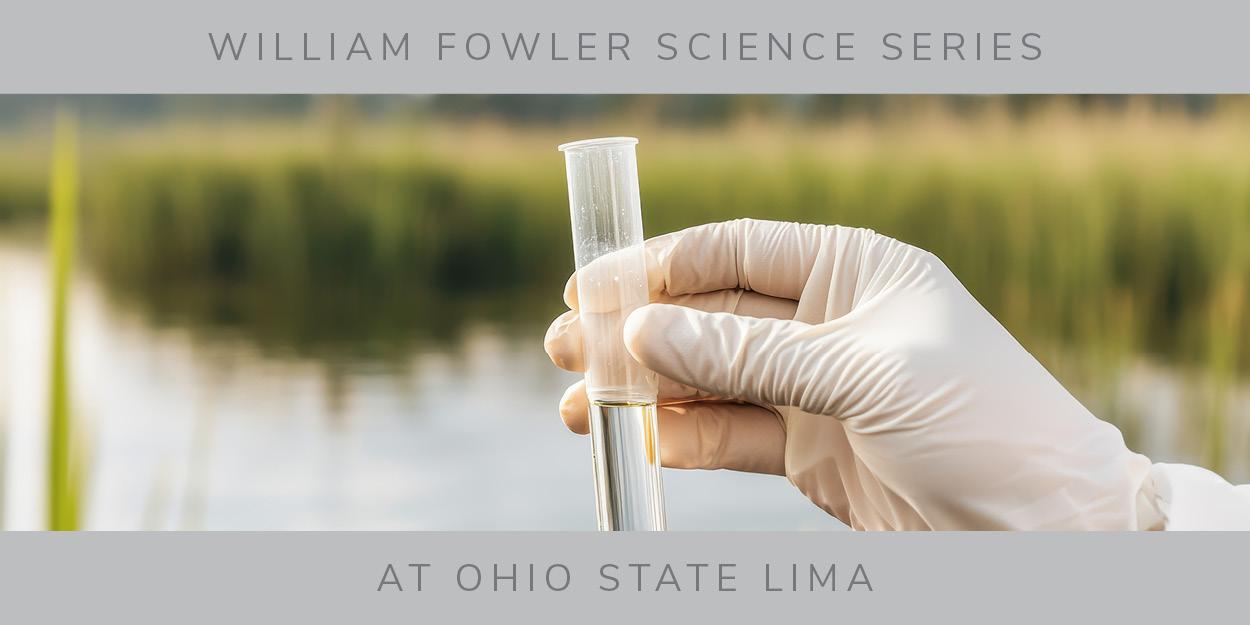The Ohio State University at Lima, the Lima City Schools and the City of Lima welcome Biologist Chris Winslow to campus Tuesday, January 28, for the 2025 Fowler Science Series. Dr. Winslow will present the keynote address “The State of Lake Erie: Nutrients and Harmful Algal Blooms” from 11:15 a.m.-12:15 p.m. in the Martha W. Farmer Theatre for the Performing Arts at Ohio State Lima.
The William Fowler Science Series is a cross-disciplinary program for the community and local middle and high school students. The Lima City Schools, in collaboration with outstanding Ohio State faculty and leaders, focus a portion of their fall semester's science curriculum on the science series' topic of the year, which for 2024-2025 is water quality.
This year, 37 students from South Science and Technology Magnet and 45 from Lima Senior High School will do activities in biology, physics and water quality in the labs at the Ohio State Lima campus. They will also get to learn more about being a college student from current Ohio State Lima students.
The keynote address is free and open to the public, but priority seating will be given to the middle, high school and college students in attendance. Winslow’s talk will give a high-level glimpse into nutrient sources today, our understanding of agricultural nutrient losses, effective best management practices, farmer decision making, possible strategies to move toward a 40% P reduction, and information gaps and research needs.
More about the keynote speaker
Dr. Chris Winslow is the director of both the Ohio Sea Grant Program and Stone Laboratory, Ohio State’s island campus on Lake Erie. The shared mission of these two programs is to sustain and enhance the vitality, value and wise use of Lake Erie and its watershed resources. Ohio Sea Grant is one of 34 coastal-based programs across the country and reports up through the National Oceanic and Atmospheric Administration. These two programs help university academics, agencies, and coastal partners to address harmful algal blooms and nutrient loss; assess the impacts of climate change on the Great Lakes; support sustainable fisheries and aquaculture; understand and combat invasive species; build clean and safe marinas; support coastal business retention and expansion; address microplastics and marine debris; and understand the impacts of emerging contaminants such as pharmaceutical and personal care products, etc. Prior to Dr. Winslow’s current appointment, he received his bachelor’s degree in biological sciences from Ohio University
